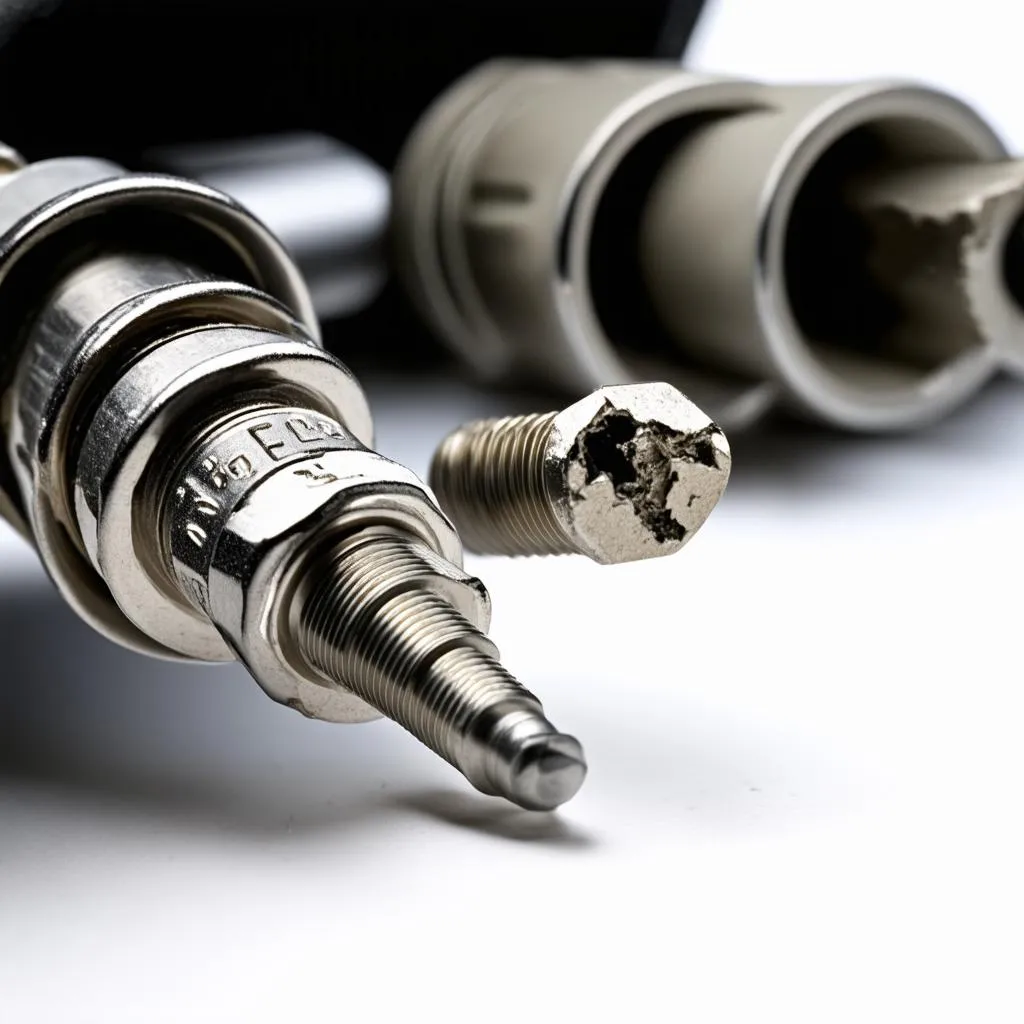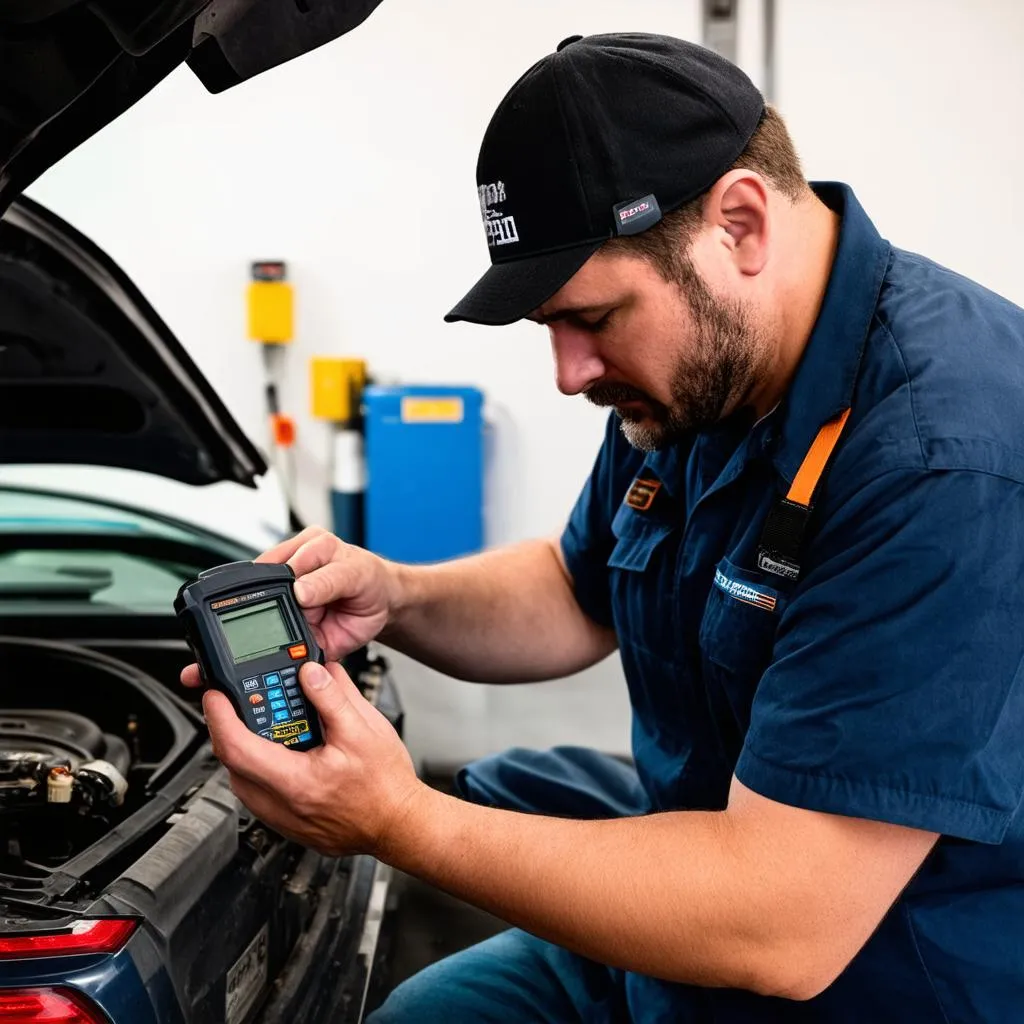Have you ever been cruising down the road, enjoying the scenery, when suddenly your car starts sputtering like a sputtering thing? Not exactly the peaceful drive you had in mind, right? Well, if this sounds familiar, you might have a “check engine” light flashing on your dashboard, and a mechanic might be muttering the cryptic phrase “P0304 code.”
Don’t worry, you’re not alone! The P0304 code is one of the most common OBD-II trouble codes, and it’s actually a good thing because it’s your car’s way of telling you, “Hey, something’s not right here!” This code, in particular, signifies a cylinder 4 misfire – meaning the air-fuel mixture in that specific cylinder isn’t igniting properly.
But what does this mean for you and your beloved vehicle? Let’s dive deeper into the mysteries of the P0304 code and get your car back to its smooth-running self.
Understanding the P0304 Code: A Closer Look at Cylinder 4
The P0304 code, in its simplest form, indicates a misfire in cylinder 4. This means the combustion process in that cylinder is failing, leading to reduced engine performance, increased emissions, and that dreaded rough idling. But beyond the technical jargon, a P0304 code can be an indicator of various underlying issues, some minor and some potentially serious.
What Causes a P0304 Code?
There are several potential culprits behind a P0304 code, ranging from a simple worn-out spark plug to more complex issues like a faulty fuel injector. Some common causes include:
-
Faulty Spark Plugs or Wires: A worn-out spark plug or damaged wire can disrupt the electrical current needed for ignition, leading to a misfire.
-
Clogged or Malfunctioning Fuel Injector: If the fuel injector for cylinder 4 isn’t delivering the right amount of fuel, the air-fuel mixture won’t ignite properly.
-
Vacuum Leaks: A leak in the intake manifold or vacuum hoses can disrupt the air-fuel ratio, causing misfires.
-
Ignition Coil Problems: A failing ignition coil can’t provide the spark needed for combustion, leading to misfires in the corresponding cylinder.
-
Compression Issues: Low compression in cylinder 4, possibly due to worn piston rings or a blown head gasket, can prevent proper combustion.
What Happens if You Ignore a P0304 Code?
Ignoring a P0304 code might seem tempting, especially if the symptoms seem minor. However, driving with a misfiring cylinder can lead to:
- Catalytic Converter Damage: Unburned fuel from the misfire can damage this expensive component.
- Reduced Fuel Economy: A misfiring engine works harder, consuming more fuel.
- Engine Damage: Prolonged misfires can lead to more severe engine problems.
How is a P0304 Code Diagnosed and Fixed?
Diagnosing a P0304 code usually involves these steps:
- Retrieve the Code: A mechanic will use an OBD-II scanner to confirm the P0304 code and check for other related codes.
- Visual Inspection: They’ll visually inspect the spark plugs, wires, and other components for obvious damage.
- Component Testing: The mechanic will test the ignition system components, fuel injectors, and check for vacuum leaks.
- Compression Test: This test checks the pressure in each cylinder, identifying potential compression issues.
Once the root cause is identified, the mechanic will recommend the necessary repairs, which could involve replacing faulty spark plugs, wires, ignition coils, fuel injectors, or addressing vacuum leaks. In some cases, more involved repairs like addressing compression issues might be needed.
FAQs About the P0304 Code
Here are some common questions car owners have about the P0304 code:
Q: Can I drive my car with a P0304 code?
While you might be able to drive a short distance, it’s not recommended. Driving with a misfiring cylinder can cause further damage to your engine and catalytic converter.
Q: How much does it cost to fix a P0304 code?
The repair cost depends on the underlying cause. A simple spark plug replacement might cost under $100, while addressing a faulty fuel injector or compression issues could cost significantly more.
Q: Can bad gas cause a P0304 code?
While rare, contaminated fuel can sometimes cause misfires. If you suspect bad gas, try adding a fuel system cleaner or draining and refilling your tank with fresh fuel.
Q: How can I prevent a P0304 code?
Regular maintenance, including timely spark plug replacements, air filter changes, and fuel system cleaning, can help prevent misfires and other engine problems.
Beyond the Mechanics: The P0304 Code and Your Car’s Energy
Some believe that a car’s well-being is not just about the physical components but also about its energy. In various spiritual traditions, cars are seen as extensions of their owners, reflecting their energy and intentions. A misfiring engine, then, could be interpreted as a sign of imbalance or blockage in the car’s energy flow.
While this might seem a little “out there” for some, there’s no harm in ensuring your car’s energy is aligned along with its physical health. Some car owners find that simple practices like cleansing the car’s interior with sage, placing crystals known for their grounding and protective properties, or visualizing smooth and efficient engine performance can create a more harmonious relationship with their vehicle.
 Car engine spark plugs
Car engine spark plugs
Need Help with Your P0304 Code?
We understand that car troubles can be frustrating. If you’re experiencing a P0304 code or any other car problems, don’t hesitate to reach out. Our team of expert mechanics is here to help you get back on the road safely and smoothly.
Contact us on WhatsApp at +84767531508 for expert advice and assistance.
Remember, regular maintenance and timely repairs are key to a happy and healthy car.
 Mechanic diagnosing car issue
Mechanic diagnosing car issue
Explore More Car Care Tips and Advice
- [Link to article about common OBD-II codes]
- [Link to article about car maintenance schedules]
- [Link to article about fuel system cleaning]
We’re here to help you navigate the world of car care with confidence. Drive safe!
